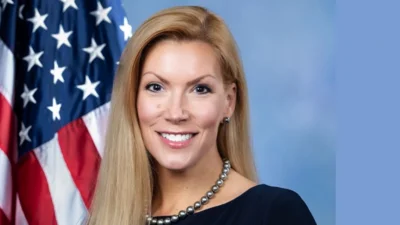Upon arriving in the Senate, Texas Lt. Gov. Dan Patrick has made it his goal to improve public education. | Dan Patrick/Facebook
Upon arriving in the Senate, Texas Lt. Gov. Dan Patrick has made it his goal to improve public education. | Dan Patrick/Facebook
Texas Lt. Gov. Dan Patrick released a statement on the passage of Senate Bill 8 in the Senate, one of his top 10 priorities for this legislative session. Patrick argued school choice is popular in Texas across party lines. He said the main goal for a school choice bill is to place the power back in parents' hands to be able to choose the best education for their children, especially if they are stuck in a failing public school.
Patrick recently issued a statement saying, "Parents are the single most important factor to the success of their child in education, followed by a teacher. Republicans, Independents and Democrats all support school choice because Texans agree that families must have choice in education so every child has the best chance of success."
According to Patrick's statement, he has attempted to pass a school choice bill in previous sessions, but was never able to get a bill through the House. He said his "goal" and "passion" has been to "improve public education." As a Texas state senator, Patrick supported bills to increase school funding and pushed school choice bills in 2015 and 2017 that were both stopped by the House.
Patrick praised Sen. Brandon Creighton's Senate Bill 8, which "includes an education savings account (ESA) of $8,000 per school year so parents can become greater advocates for their children." The bill also includes a funding clause for rural districts (20,000 students or less). Patrick speaks highly of Texas public schools, calling "many of them great" and "most of them good." He supports Senate Bill 8, which will give parents the opportunity to use education savings accounts for other forms of education where a public school is "failing."
According to EdWeek, ESAs are growing in popularity in the United States. These accounts give families access to public per-pupil funds, which can be used to pay for tuition to private schools, homeschooling supplies, curriculum materials and educational therapy services. The accounts began in Arizona in 2011 and were originally limited to students with disabilities, low-income students and students in failing schools. Following the pandemic, they have grown in popularity with more states opting for universal programs, allowing any student to use them. As of March 2023, 11 states have ESA programs or expansions to previous ESA policies.
The Ft. Worth Times reports that Gov. Greg Abbott has been very supportive of an ESA bill in Texas.
"Lawmakers this session have the opportunity to ensure all Texas students, regardless of ZIP code or family means, can live up to their highest potential and together keep our state’s future rich with possibilities," Abbott wrote in an opinion piece. Abbott argued ESAs will help boost career opportunities and contribute to Texas' growing economy.






 Alerts Sign-up
Alerts Sign-up